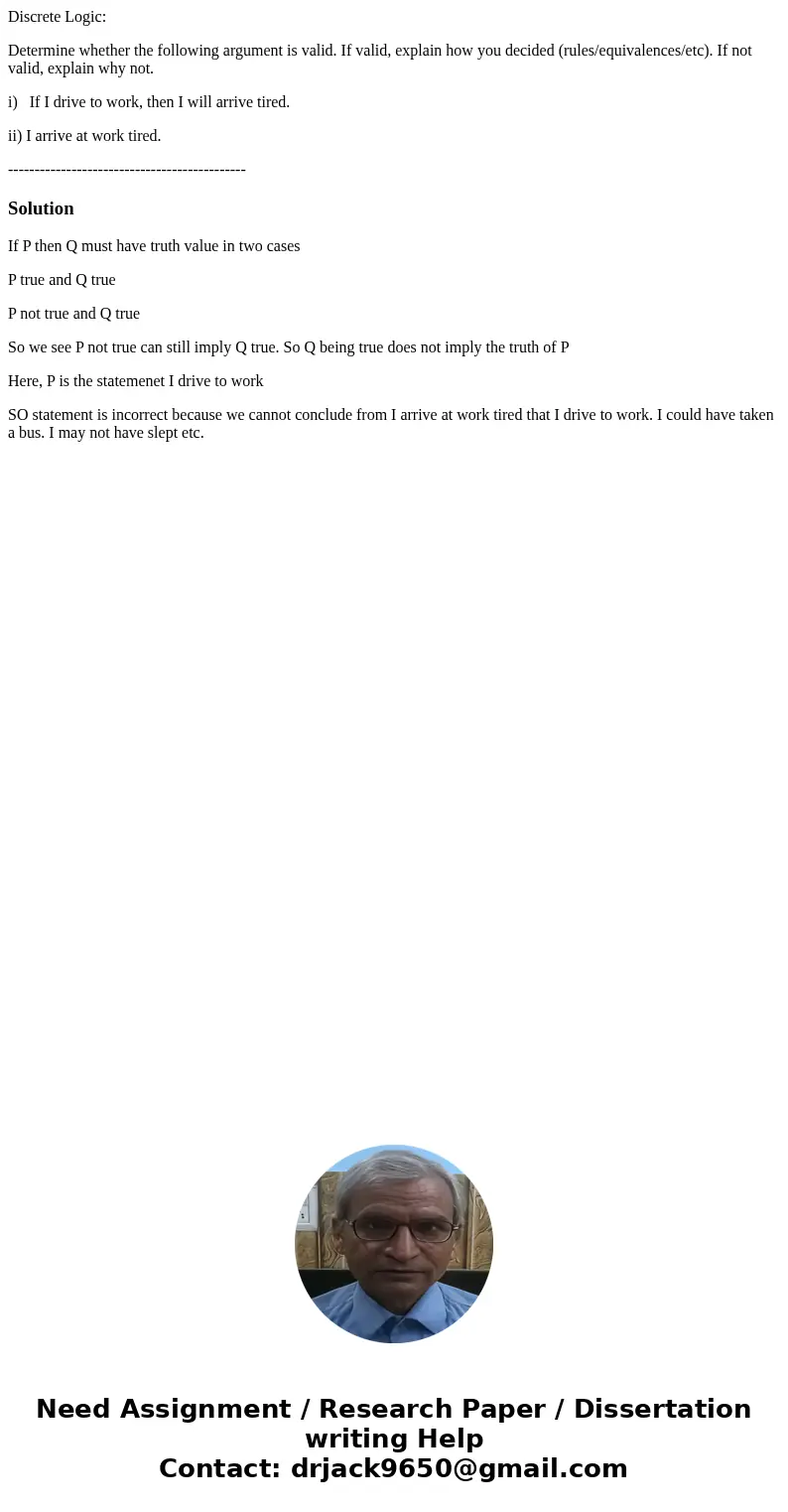Discrete Logic Determine whether the following argument is v
Discrete Logic:
Determine whether the following argument is valid. If valid, explain how you decided (rules/equivalences/etc). If not valid, explain why not.
i) If I drive to work, then I will arrive tired.
ii) I arrive at work tired.
---------------------------------------------
Solution
If P then Q must have truth value in two cases
P true and Q true
P not true and Q true
So we see P not true can still imply Q true. So Q being true does not imply the truth of P
Here, P is the statemenet I drive to work
SO statement is incorrect because we cannot conclude from I arrive at work tired that I drive to work. I could have taken a bus. I may not have slept etc.

 Homework Sourse
Homework Sourse